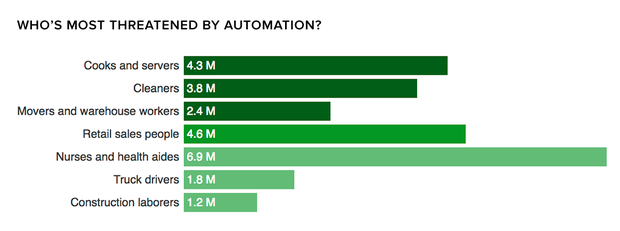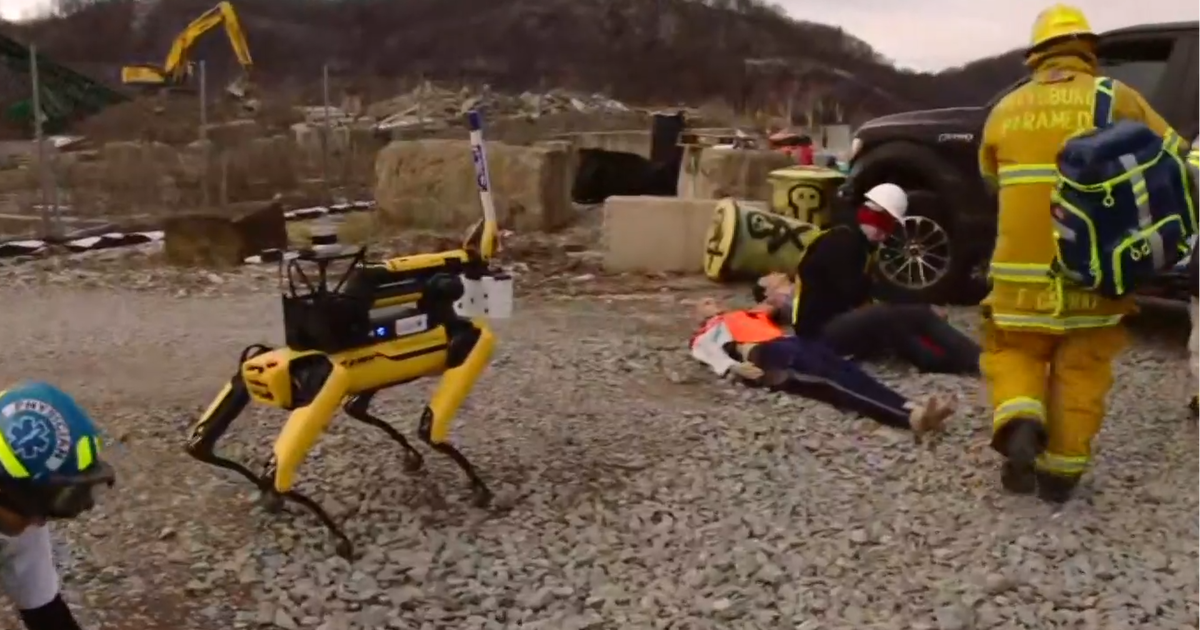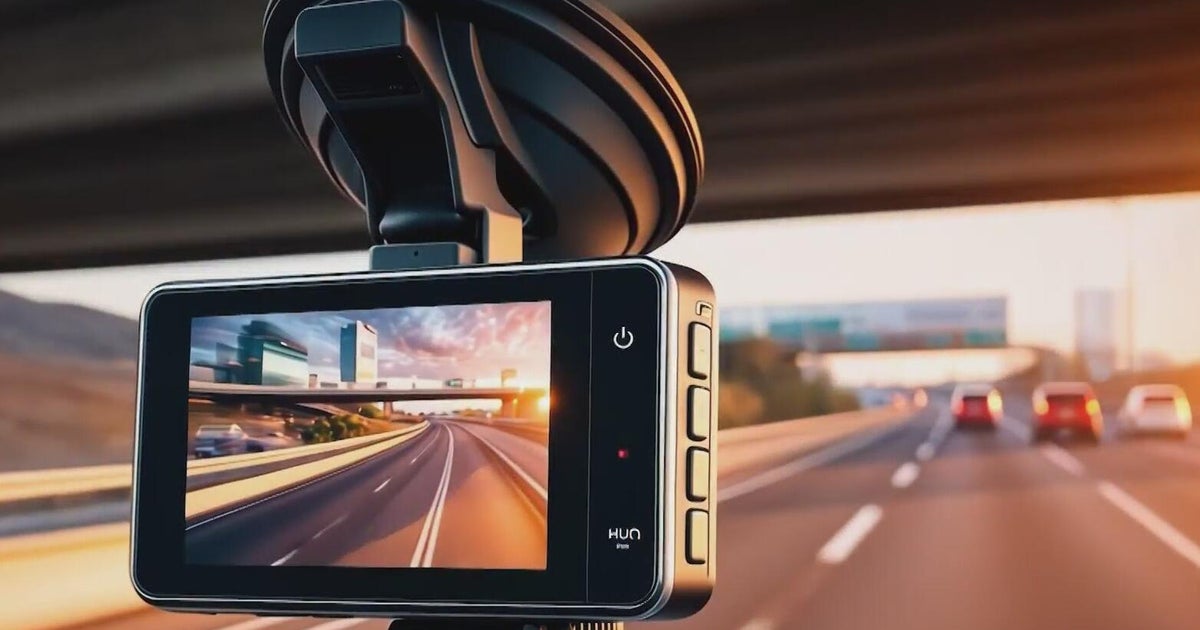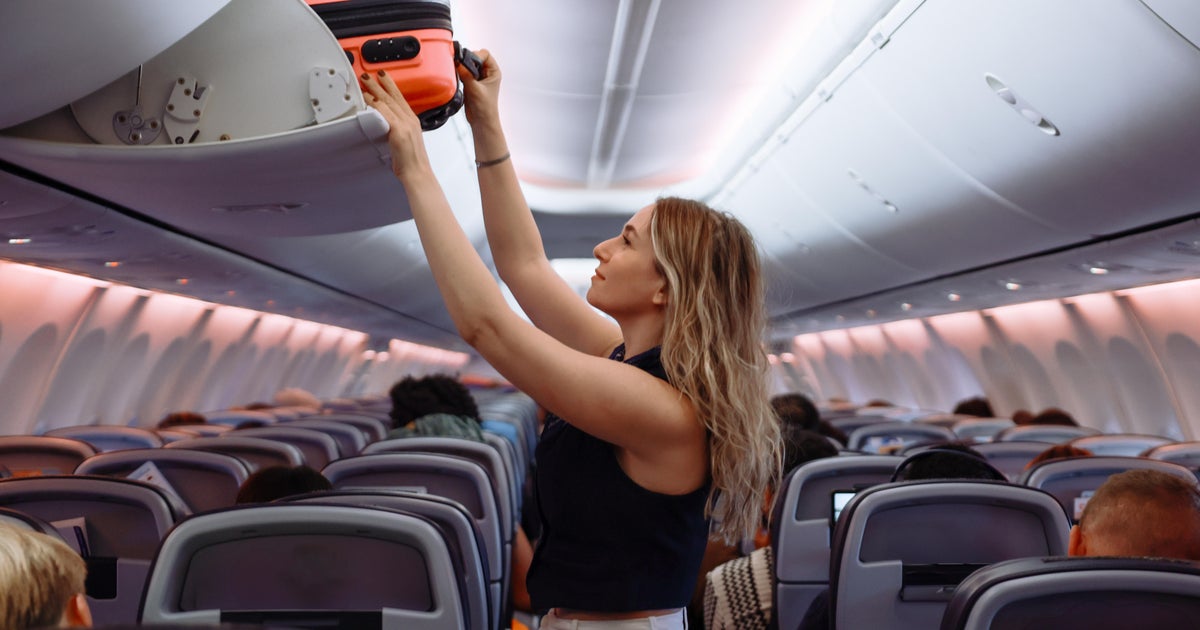These jobs are most at risk for being automated
Alexa, do you know the machine making my salad? What about the one cleaning my floor?
Such questions are becoming more likely, quickly. At least 10 million U.S. jobs have a high risk of bowing to automation in the next decade as companies deploy machines that can learn and perform tasks from flipping burgers to trading stocks at a faster pace than ever, a new analysis from research firm CB Insights found.
Of the more than 4.3 million cooks and servers at high risk, "fast-casual" cooks face the most immediate chance of losing their jobs as more patents are filed to automate tasks such as grilling burgers, making salads and brewing coffee, the analysis found.
Another 3.8 million cleaners and 2.4 million movers and warehouse workers could also face displacement, according to CBI.
Retail salespeople are at what CBI called medium risk, with 4.6 million jobs on the line -- but that's because there's a "much more immediate risk" their jobs will be eliminated as consumers turn to online shopping.
The 6.9 million nurses and health aides examined in the study were labeled at lower risk because patient-facing jobs are more difficult to automate. And 1.8 million truck drivers are in the same category because "fully autonomous vehicles are still in the early stages" of research and development, the report said. About 1.2 million construction laborers rounded out the list.
Jobs traditionally labeled as blue-collar aren't the only ones at risk, CBI noted.
Wall Street, the media and even software developers are already coping with artificial intelligence and automation, which are changing the nature of work.
About four in five Wall Street firms have already implemented or plan to use some kind of artificial intelligence, Bloomberg Businessweek reported last month.
"The majority of AI applications today still require humans in the loop," CBI's report said. "For many blue- and white-collar jobs at risk, this means employers will still need hands on deck -- just fewer of them."
The CBI analysis examined 25 million jobs in seven industries and is based on U.S. Bureau of Labor Statistics.
The firm used "key tasks" from the bureau's list of occupations to diagram which jobs are most at risk, and it considered tasks involved, existing commercial deployment, patent and investment activity, technological challenges and regulations.
It also pointed to venture capital investments across several sectors as indications of coming technologies.
The analysis echoes a January 2017 report on automation from consulting firm McKinsey & Co., and another one the firm released in May that estimated automation technologies that have already been demonstrated may eventually affect half the global economy. That's 1.2 billion employees and $14.6 trillion in wages, with China, India, Japan and the US accounting for a little more than half of that.
Economists and work experts are at odds whether artificial intelligence and automation will create more jobs eventually than it destroys.
That's a waste of time, argue Thomas Kochan, a professor of management at MIT's Sloan School of management, and Lee Dyer, a professor emeritus of human resource studies and a research fellow at the Center for Advanced Human Resource Studies at Cornell University.
"The question society should be asking is: 'How can we direct the development of future technologies so that robots complement rather than replace us?'" the two wrote in a piece for the Conversation, an academic website.
The CBI report didn't look at the long-automated manufacturing and agriculture sectors.







